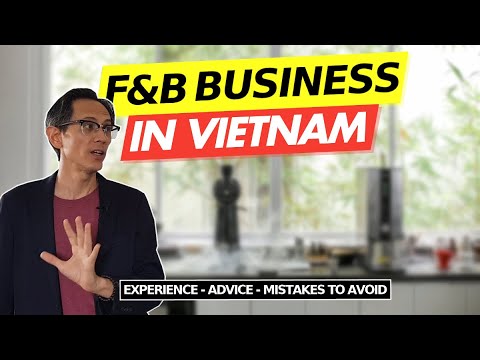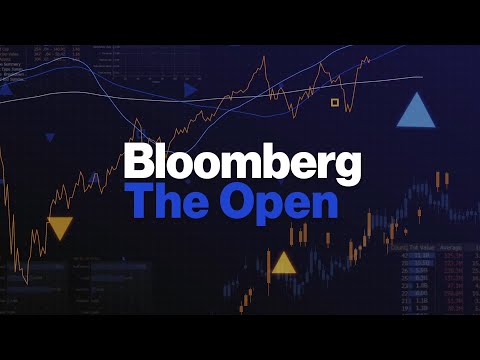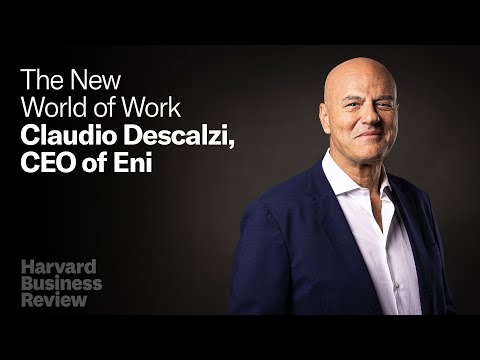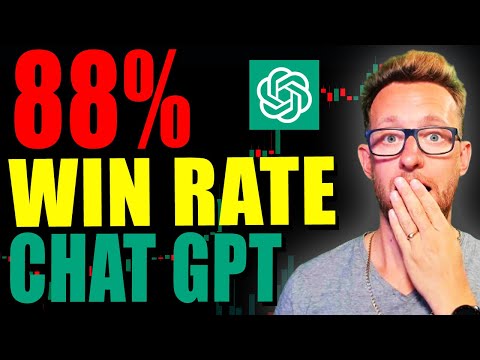Start your F&B business in Vietnam: common mistakes, feedback, tips

Hey, guys, welcome to this new video today. I have a special guest on the channel and we're going to talk about the coffee business in Vietnam, the F&B business, as well as the training industry in Vietnam. And to talk about this subject, I invited Will, who has been involved in this industry for quite a while. So he's going to share hisentrepreneurship journey as well with the
different points, I just mentioned you. So thank you, Will, for accepting this interview. So can you share your journey being entrepreneur in the coffee business as well as moving and being settling now in Vietnam.
Sure. It's a very long story. It's about 20 years. So I first came to Vietnam after college in 2004, and we my wife and I just kind of got to know the city, Ho Chi Minh City, a little bit. But we didn't really do a lot other than make some really good friendships. Luckily, we kept those relationships because they ended up playing into the story a little later. And then we moved back to the States and back to Vietnam a couple of times. Then in twenty, twelve, twenty eleven, I started to become interested in coffee in Vietnam. I'd started my coffee career and about twenty six, twenty seven and started
really seriously studying things. And then around twenty eleven I got curious about Vietnamese coffee industry. And so as I just explored more and more, I discovered that there wasn't really much information other than commercial trading info. And I was wondering if Vietnam was the number two producer around the world and why don't we see Vietnamese coffee in bags anywhere? And then the more you explore, the more you find out. And it's all going into instant coffee. And of course, it's not being labeled as Vietnam, it's being labeled as this cafe or something else. So I want to know why that was.
And so I started exploring things like the landscape and geography, climate patterns, and I found that there were a couple of good spots in Vietnam to grow good, good quality Arabica coffee at higher elevations, which is good for quality. And that one place was a lot. The other place was in the north, around NinhBinh and Son La.
But those places were a little bit kind of on the cusp out of altitude wise. And so I wanted to focus on places that are slightly above the bare minimum. And so Dalat ended up being the place. So around twenty twelve, my wife and I started getting ideas about going back to Vietnam and so we decided to just start preparing for that. And then at the end of the year we made the move, selling all of our possessions and moving back here again. And then we settled in a lot where we just started literally knocking on doors, just we'd see a good looking coffee farm and we just have to find the owner.
Luckily, we met someone at a coffee festival in Daklak province just by chance, and his name is Quang Tran. And he went on to become the founder of La Viet Coffee. So early on, we really bonded pretty hard because we were both very interested in coffee. He had a coffee facility with all the right resources, but the lack of specialized training. And I had all of the specialized training and the lack of the resources.
So we just put everything together. He let me do just about any experiment that I wanted to do in coffee. And I used this facility non-stop and I trained all of his stuff.
And so we we had this great trade and relationship. And together we ended up meeting and identifying a few dozen good smallholder coffee farmers in the region. And some of them he's still working with today.
Some of them have gone off to do their own coffee related projects and some are not in coffee anymore. So it's kind of a little bit of a mixed bag. But we we did end up interacting with probably about one hundred coffee farmers in all together. And nowadays I focus a bit more in I don't try to spread myself so thin, although I welcome any new relationships. You know, I think I work consistently with two, sometimes three farmers.
It's much more manageable. And and I kind of let other people handle the. Their own relationships in the night come in and assist for quality, and then sometimes I'm able to join. We're going to talk a little bit after a more deep into the training that you are providing and and the opportunities that you see in this sector, in the coffee industry in Vietnam. Can we come back to those 10 years of experience? Learning about coffee.
What's the challenge? Did you see what the different improvements or the on the other aspect was the lack did you see over the 10 years, that's still not solved. That should be improved to make the Vietnamese coffee like worlwide known as a specialty coffee or premium robusta coffee ? Sure. Back when I arrived, specialty coffee was not really in the lexicon. There might have been a few individuals who were aware of it, but they just did it in their kitchens. They weren't really like going places to find it.
And good coffee was not really easy to come by. And most of the coffee that I found was adulterated with artificial ingredients and all kinds of nightmare things, especially me as a vegetarian, finding out that sometimes there's fish sauce in a coffee or chicken fat or pork fat added to the coffee. How can anyone like, you know, because by the time it reaches the street level, they don't know what's in the coffee.
This is just coffee. You drink it. Right? So most of the coffee was that stuff adulterated, maybe even fake coffee. And then about a year after I arrived, there was also this movement of people who cared about like clean coffee, pure coffee stuff that wasn't adulterated. It wasn't yet about quality. It was just about like a healthy product.
And so something that's safe to consume and the long term. So that really that movement began to really take off. Meanwhile, I was working in Dalat and Saigon trying to just collect specialty coffee, friends, people who wanted to learn. And so we would just have tastings.
I would always any time I was in the States or a friend was visiting, I would have them just bring tons of different coffee. And then I would just organize tastings and share and just like try to spread the word of good coffee. And that that also began to take off. And so at the same time, this sort of better quality coffee and safe to consume coffee sort of movements started to move and come together a little bit. And so over time, those trends kind of kept moving up. And now you would probably it probably be a challenge to find to find adulterated fake coffee that was in the same sort of mode as before.
Now the adulterated coffee is its adulterated with less weird stuff. Right. So they're adding maybe some caramel or some butter or some kind of aroma to the coffee, which is kind of normal, especially with commercial coffee. So that's that's fine. We're not finding dangerous stuff like battery acid in the coffee anymore. So I'd I'd say that that's a big plus the word specialty coffee lately has been a little bit abused.
People just put the word up there and make the cafe look nice, but don't change the coffee at all. That's in my book. That's fine. That's like one small step towards a bigger goal. And it's actually easy to find imported, well, roasted and carefully brewed coffee. Now, probably in every district in Saigon, there's at least one cafe. It performs really well.
If I want to buy Ethiopian coffee, I can search on Facebook and find at least half a dozen roasters selling it. And so it's a it's like night and day change in terms of good specialty coffee that's available. But I also have been paying attention to the mass market and the mass market has also lifted up in quality. If you look at the top two or three brands like there, they're all using coffee that is much more pure than what was around ten years ago.
So I would say that it's all been upwards. Ok, so coming back to maybe the defining momentor a declic that you had in launching Building the place we are now. Yes. Can you come back early this exact time when you told yourself that there is really
an opportunity, there is really for you, withyour experience. You can provide something and you can really change(a little bit) the world of the Vietnamese coffee industry ? What was your moments in launching Building ? So the catalyst was actually my friend at the workshop Specialty Cafe in District one. I would say that they were Vietnamese first proper specialty cafe there are roasting in the cafe for a while. Five kilo roaster, maybe two or three days a week. And then suddenly they saw their volume increase and they were struggling to have space. And so he realized that they were going to have to build a separate roasting
facility. And he had no experience in that. He was purely in the retail business, restaurants, bars and things like that. So he called me up and he wanted my help. And I said, well, I'm not just going to move back to Vietnam for a job with the roasting company. That's not what I want to do there. I want to be a little bit more community focused. I want to help the industry at large and not just one company.
So how can we do this? So I just started kind of cooking up ideas. I had friends. I was living in Portland, Oregon at the time, and there was I was friends with the owners of one place called Buchmann Coffee Factory, and they have what was known as the cold roasting facility model co roasting factory. I don't know where. Basically they have their own roasting company that use the machines one or two days a week. And they figured out that there are probably other people who want to use this
machine during the week. And so they just started renting it by the hour. And I thought that that's that's actually a really good sort of mission based business. And so we really had no idea if it was going to be profitable. And actually, my friends at Buchmann said, yeah, you're going to have to do a lot more than just roasting because it doesn't make any money like, OK, well, that can be our mission and then we can find other ways to make money. And so I presented this to my friend at the workshop, and he really loved the idea of just kind of setting the example for new people coming in to coffee for specialty coffee, people who didn't really have the resources to do everything they wanted to do.
So we wanted to kind of just provide that playground for them. And so we have all the proper stuff that's necessary to do good quality coffee and to roast it, to brew it, to analyze it and to taste it. And we really wanted to present it in a way that we thought was proper.
You know, anyone can kind of cobble together with some temporary folding tables like a cupping lab, but like really something that's like solid and what we want more people to build here. So we thought this would be a really good place to set the example. Ok, so you start Building with 4 cofounders, right. So you are the kind of the main person in the company.
But you also have two cofounders who are Vietnamese can you share about this choice. This partnership or joint venture that you find and what do you select those key people to maybe spread more to the local market and to have a bigger influence in the coffee industry? So there are four active co-founders and there is one co-founder who stays behind the scenes. And he's the the one at the workshop who really got me started thinking about this. So I want to talk about him because he likes to stay behind the scenes. But the four co-founders, me, my wife, Kel, we bring our all of our experience to this. And then a guy named Truing and a person named Drew.
And we're the lead people at the workshop. So and was the bar manager and they did all of the barista training and kind of keeping up with quality there and was the roaster and inventory manager for coffee. And so rather than just like just poach staff, we decided they should really like the next step for them is to level up and start helping other people with the business and their experience. They've got six years of experience under their belt now doing those roles. And so we thought that that was a really good amount to build on.
And so we brought them in and said, do you want to be partners in this? And of course, the rest is history. Yeah, OK, so for people trying to educate and spread this awareness of the premium coffee and how also from the raw materials until you go to the end of the chain, it's like educate the farmers first and also step by step the process and the end the barista. Yeah, I do want to pick on one word. I don't really aim to educate farmers because I've never been a farmer, so I can't really. Claim to know what's best for them. I do share a lot about what I have seen successful farmers in other countries do, and it's a little bit of a semantic sort of difference.
But I want to make it clear that I'm not educating farmers. I am helping them to connect to markets. I'm helping to connect them to resources if they are at all interested in roasting or brewing coffee. I will educate the heck out of them. I'm definitely prepared to teach them what to do.
That stuff. But I guess in the mountain there is still the problem as well as they have a lot of choice. So they could spend a lot of effort to grow premium Arabica, but they can also flowers use chemical and finally make successful business as well. So it's much more profitable. So it is still the all chain that you have tolevel up step by step.
I do have to kind of groom the whole chain in a way. And really I do play sort of a like a cheerleader, kind of or like pep talk guy, a farmer's kind of feeling down about the conditions or the price that they get for their coffee. And I'm kind of like a good listener for that. And so I'm not here to tell everyone they should stick with coffee and disbelief because sometimes it doesn't make sense.
And I present to them the realities and just how much work it is to produce specialty coffee. If the heart's not in it, there's no reason to make them want to do that. Just sell the plot of land. You're going to get a lot of money for that or let somebody else manage the coffee farm and you just rent it to them or something like there are lots of different ways to do so. And then traveling down the chain as we get closer to the customer, I have a lot more
experience and I'm able to train people and they usually come to me for that type of consulting. Yeah, so. So you are training the all chain.
To understand more, can we maybe now focus on the end customer? So let's say the coffee lover, who gonna open his coffee shop. It's a very competitive sectors in the retail and the F&B in Vietnam. I mean, in the big cities like Saigon, Hanoi, which advice would give them to kind of get started and maybe getting some initial key takeaway that they shouldn't avoid if they want to jump into that industry? I would say you get serious about business and about getting to know your neighborhood or your locations, specific regulations, requirements, and find a good landlord. I would say that that's like that's the top priority.
If if your landlord is maybe like 60 percent good, then that's pretty risky, you know, or if your landlord is undecided, that might also be risky because they will sell the property before you're finished with it. There are all kinds of things that can happen in your real estate. So you really want to make sure you have a solid foundation with your landlord. Let's say that that that might even be priority number one for cafe owner.
The coffee stuff, honestly, maybe I'm biased in thinking this, but the coffee skills are quite easy to teach. All you have to do is find a reputable academy or teacher pay the fee. Trust me, even if the fee sounds high, it's totally worth it. And there are reasons for those fees. Those fees will get you there quickly and you'll feel more confident in that stuff. So put the coffee stuff aside and really focus on running a business and really like making sure that that business is enough to bring you the type of life that you want to have, because there are plenty of cafes that are full of customers that are making the owners zero dollars.
Right. And so it's just that's a matter of scale. Right. How big do you need to get before you are making a good living? Right. Oh, you with your lifestyle.
I probably say three cafes is what you need to do. Three cafes selling one hundred drinks or more a day. Right. And so those sorts of things like learn the business planning stuff that was that actually that's my biggest regret in life and my mistake not maybe not in life, but is not getting serious enough about the business side early enough. Maybe I got some good lessons from that.
I'd say that that's like one thing that most coffee passionate people just overlook. It might even be the obstacle that they avoid like like I did. So just be sure to look at your business needs holistically and not just focus on coffee, because actually coffee is not even what the coffee. Business is about is about people, so those baristas who care more about coffee quality and staring at water dripping on some grounds than customer service, they're not going to be around very long. I love their coffee, but I don't love being served by them.
So I want someone who's more got more like a customer oriented service. Yeah. OK, so let's say you find a location, agreat one, attractive location. You make sure that you're not going to be with you months after months and years, after the years. Then you train your staff, you build a team and then you can naturally serve
the customer. So be sure with the customer service and everything around, just the product that you are selling. Right. Right. Right. I mean, quality product is the bare minimum.
That's OK. So forget that you've got a quality product. Now, focus on the people who are buying that product and how do you get them engaged? How do you keep their loyalty? How do you spread the word? How do you get them to become your marketing mouthpieces? Right. So this is why you need to focus on the people and not so much on the product, but the product should be a given. I should trust you to be the coffee expert.
You know what you're doing now. What? Right. OK, thank you. Thank you all for your sharing about your entrepreneurship and then your involvement and commitment to the coffee business in Vietnam. I hope you guys enjoyed this video. Check the description that we need some links, some resources, as well as the website of Will and maybe Building. I mean, you can get more information about Will.
And thanks again, guys, for watching this video. And I see in the next one. Thank you. Bye Bye.
2021-04-27 14:48


